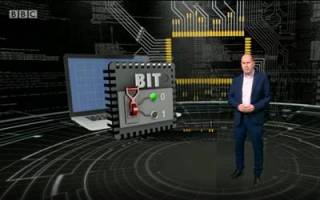Videos from the UCL Quantum Science and Technology Institute, events and media. We hope that they can provide you with insight and inspiration to learn more about the future of quantum computing.
YouTube Widget Placeholderhttps://www.youtube.com/watch?v=7DTk7Wu0qGI
Nikolas Breuckmann from UCL discusses his recent research. Together with his collaborator Vivien Londe from Institut national de recherche en sciences et technologies du numérique (inria) they have detailed how to make quantum computers robust against noise using the geometry of hyperbolic 4-manifolds.
YouTube Widget Placeholderhttps://www.youtube.com/watch?v=te_tdvKaMYo&t=146s
Video for the paper by Schaal and colleagues published on Nature Electronics last June 2019. In the paper the authors prove how to integrate a classical control circuit with quantum dot devices; they demonstrate dynamic radio-frequency readout and show routes to a fully integrated readout architecture.
YouTube Widget Placeholderhttps://www.youtube.com/watch?v=m1UOiLlTUes
The QUES2T programme focuses on three of the most promising solid-state QT platforms to date: superconducting circuits, silicon-based nano-devices with the longest-lived solid-state qubits and carbon-based devices such as colour-centres in diamond.
BBC News Segment on Quantum COmputing
The BBC News Technology desk reports on the emerging field of quantum technologies, including videos featuring UCLQ academics!YouTube Widget Placeholderhttps://www.youtube.com/watch?v=exYeKn2uZJM
A recent interview between UCLQ director Prof John Morton and Roger Highfield, Director of External Affairs at the Science Museum about commercial interest in quantum computers, ‘quantum supremacy’ and more.
YouTube Widget Placeholderhttps://www.youtube.com/watch?v=hfYMFp70qwQ
Dr Cameron Deans interviewed during a showcase of the FASS initiative by DASA, DfT, and the Home Office about a new quantum technology-based scanner that could improve airport security by imaging luggage and small cargo without using hazardous ionising radiation such as X-rays.
YouTube Widget Placeholderhttps://www.youtube.com/watch?v=YiXnvrh1Tw0
Jason Petta is a professor of physics at Princeton University. While visiting UCLQ we asked him about the main challenges that quantum technologies face for the future.
Vimeo Widget Placeholderhttps://vimeo.com/78197944
This video piece from the Royal Society featuring UCLQ academics aims to explain how quantum computers fit in to the history of computation.
YouTube Widget Placeholderhttps://www.youtube.com/watch?v=QHPiMZpHfm4
For the first time, researchers at UCL have proposed a new method for measuring gravitational acceleration with a sensitivity that can in principle surpass the standard set by atomic interferometry.
YouTube Widget Placeholderhttps://www.youtube.com/watch?v=qAVF236P7GE
Coherent coupling of spin and light could enable a quantum internet where highly coherent electron spins are used for quantum computing. In this colloquium, Prof Petta describes experiments coupling a single spin in silicon to a single microwave frequency photon.
YouTube Widget Placeholderhttps://www.youtube.com/watch?v=QN5tns6TIO4
Semiconductor nanowires are versatile materials that enable new means of qubit control using electric fields. This talk presents experiments in which we have developed nanowire-based qubits and integrated them with superconducting microwave cavities for scaling and readout.
YouTube Widget Placeholderhttps://www.youtube.com/watch?v=hil-tkoIFFw
This talk describes an efficient quantum algorithm for the Moebius function from the natural numbers to {-1,0,1} and discusses the algorithmic techniques used in this algorithm. While the Moebius function was previously known to be in BQP, here they present an algorithm that does not rely on factorization via Shor's algorithm as an intermediate step.
YouTube Widget Placeholderhttps://www.youtube.com/watch?v=EEbWzzi8qpA
Spontaneous magnetic order is expected to occur in graphene in two different situations: at the zigzag edges at zero applied field and in the Quantum Hall regime, at half filling. This talk discusses theory and experiments that would conclusively confirm room temperature edge ferromagnetism in graphene

 Close
Close

